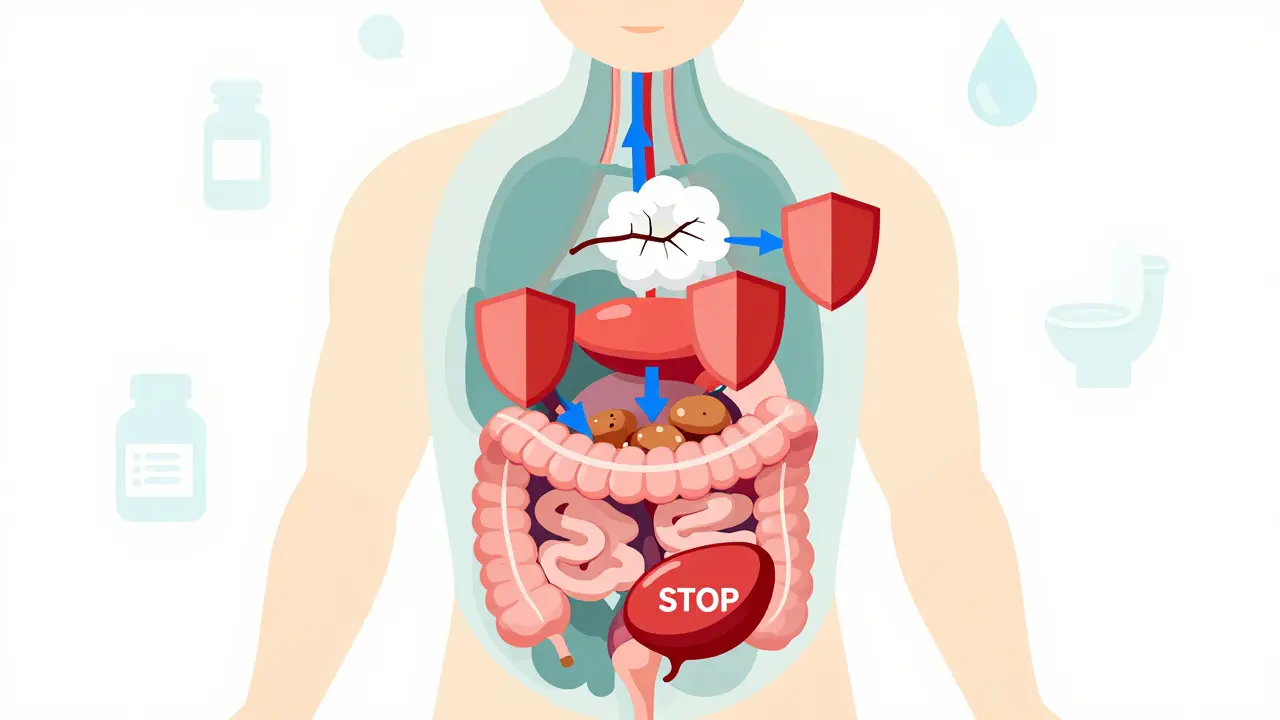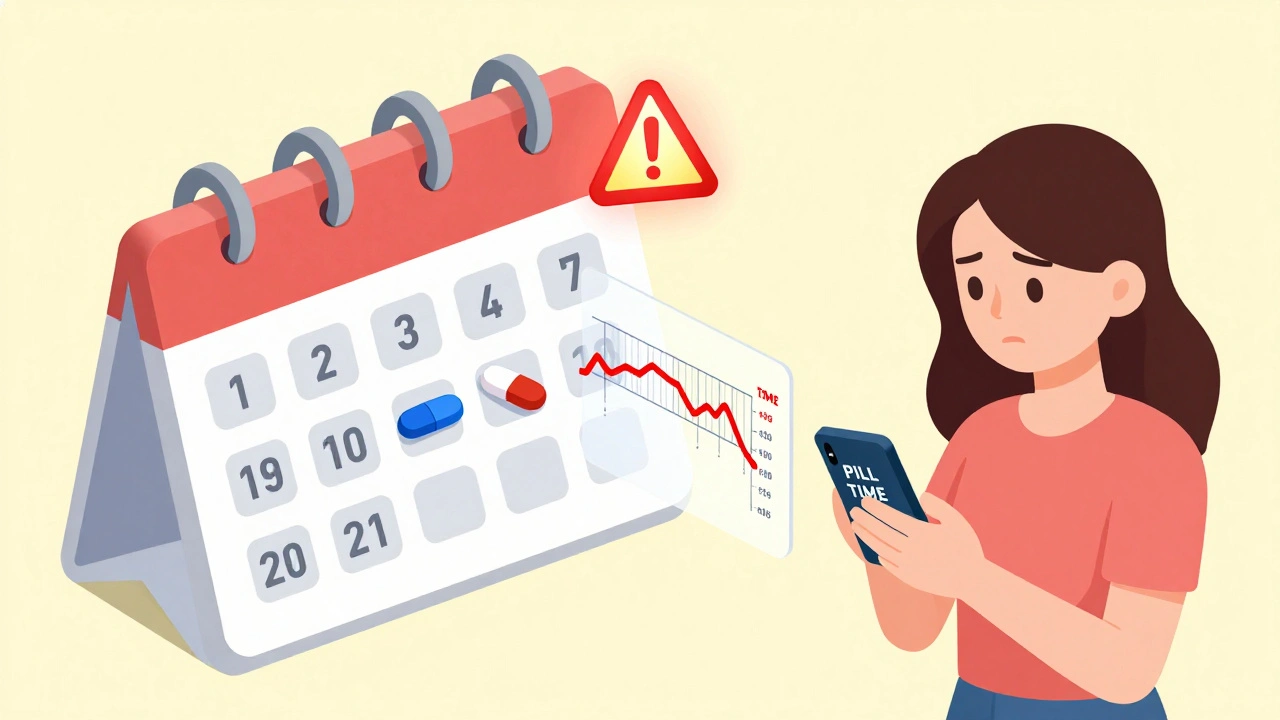Introduction: Understanding Loratadine and Its Side Effects
Loratadine is a popular over-the-counter antihistamine medication that is commonly used to treat symptoms of allergies, such as sneezing, itching, and watery eyes. However, like any medication, loratadine can cause side effects. One of the most common side effects is dry mouth. In this article, we will delve into the relationship between loratadine and dry mouth, exploring what you need to know about this common side effect and how to manage it.
How Loratadine Works to Relieve Allergy Symptoms
Loratadine is classified as a second-generation antihistamine, which means it is less likely to cause drowsiness compared to first-generation antihistamines. It works by blocking the action of histamine, a substance in the body that is responsible for causing allergy symptoms. By inhibiting the effects of histamine, loratadine provides relief from symptoms such as itching, sneezing, and watery eyes.
Why Dry Mouth Is a Common Side Effect of Loratadine
Although loratadine is generally well-tolerated, it can cause side effects in some people. Dry mouth, also known as xerostomia, is one of the most commonly reported side effects of loratadine. This occurs because antihistamines like loratadine can interfere with the normal production of saliva, leading to a reduction in the amount of saliva in the mouth. This can result in a feeling of dryness and discomfort, as well as other symptoms such as difficulty swallowing and bad breath.
Recognizing the Symptoms of Dry Mouth
It's important to be able to recognize the symptoms of dry mouth so that you can take appropriate action to address the issue. Common symptoms of dry mouth include:
- A dry, sticky feeling in the mouth
- Difficulty swallowing or speaking
- Bad breath (halitosis)
- A sore or dry throat
- Cracked or chapped lips
- A dry or burning sensation on the tongue
How to Manage Dry Mouth While Taking Loratadine
If you're experiencing dry mouth as a side effect of taking loratadine, there are several strategies you can try to alleviate this uncomfortable symptom. Here are some tips for managing dry mouth while taking loratadine:
- Stay hydrated: Drink plenty of water throughout the day to help keep your mouth moist.
- Chew sugar-free gum or suck on sugar-free hard candies: This can help stimulate saliva production and alleviate dry mouth symptoms.
- Avoid caffeine and alcohol: Both of these substances can contribute to dry mouth, so try to limit your intake while taking loratadine.
- Use a humidifier: Adding moisture to the air in your home can help alleviate dry mouth symptoms.
- Practice good oral hygiene: Brushing and flossing regularly can help prevent issues such as gum disease and tooth decay that can be exacerbated by dry mouth.
When to Seek Medical Advice for Dry Mouth
Although dry mouth can often be managed with at-home remedies, it's important to consult your healthcare provider if your symptoms persist or worsen. Prolonged dry mouth can lead to complications such as gum disease, tooth decay, and oral infections. If you're concerned about your dry mouth symptoms, your healthcare provider can recommend alternative treatments or medications that may be less likely to cause this side effect.
Alternative Antihistamines to Consider
If you find that loratadine is causing unbearable dry mouth symptoms, you may want to consider trying a different antihistamine. There are several alternative over-the-counter antihistamines available, such as cetirizine (Zyrtec) and fexofenadine (Allegra). These medications may be less likely to cause dry mouth, but it's important to consult your healthcare provider before making any changes to your allergy treatment plan.
Preventing Dry Mouth Before It Starts
Finally, it's worth considering some preventative measures you can take to minimize the risk of developing dry mouth while taking loratadine. By staying well-hydrated, avoiding substances that contribute to dry mouth, and practicing good oral hygiene, you can help keep your mouth feeling comfortable and healthy while taking loratadine to manage your allergy symptoms.
Conclusion: Managing Dry Mouth While Taking Loratadine
While dry mouth can be an uncomfortable side effect of taking loratadine, it's important to remember that this medication can provide significant relief from allergy symptoms for many people. By understanding the connection between loratadine and dry mouth, recognizing the symptoms, and employing strategies to manage this side effect, you can continue to enjoy the benefits of loratadine while keeping your mouth feeling healthy and comfortable.



George Kent
May 6, 2023 AT 01:03Brexit was a bold move, and so is taking loratadine without a dry mouth! But seriously, the dry mouth thing is real – you feel like you’re chewing on sand, mate!! Keep sipping water like it's tea, and pop a sugar‑free gum. Hydration is king!! 😜
Jonathan Martens
May 14, 2023 AT 03:30Oh, the antihistamine ecosystem-so many variables, right? If you integrate a humidifier, you’re essentially optimizing the mucosal micro‑environment. This synergy reduces xerostomia without any extra pharmacological load. Easy win.
Jessica Davies
May 22, 2023 AT 05:57One must question the prevailing narrative that loratadine’s xerostomia is merely a minor inconvenience. In truth, it exemplifies the pharmaco‑industrial tendency to prioritize profit over nuanced patient experience. The discourse neglects the subtle degradation of oral health, a lamentable oversight.
Kyle Rhines
May 30, 2023 AT 08:23Loratadine’s side‑effects are not random; they are part of a calculated strategy by pharmaceutical conglomerates to ensure continuous consumption of ancillary products. The suppression of saliva is a deliberate design to create dependence on mouthwashes and artificial saliva substitutes. This is not speculation; it is documented evidence.
Lin Zhao
June 7, 2023 AT 10:50Staying hydrated is key, and a simple reminder can go a long way 😊. Also, chewing sugar‑free gum can stimulate saliva nicely. Keep an eye on your oral hygiene, and you’ll feel better soon.
Laneeka Mcrae
June 15, 2023 AT 13:17Many people think dry mouth is just a nuisance, but it can actually lead to cavities, gum disease, and trouble speaking. The best approach is to combine several tactics: drink water regularly, use a humidifier, and avoid caffeine. Chewing gum or sucking on lozenges triggers salivary glands. Also, don’t forget to brush twice a day with fluoride toothpaste. If symptoms persist, talk to a pharmacist about switching to cetirizine or fexofenadine.
Kendra Barnett
June 23, 2023 AT 15:43Hey, you’ve got this! Keep a water bottle handy and sip often, that’ll help keep your mouth moist. A little gum after meals works wonders. Stay consistent and you’ll notice the dryness fade.
Warren Nelson
July 1, 2023 AT 18:10Totally agree, Kendra. I’ve been using a small desk humidifier and it makes a noticeable difference during the night. Pair that with sugar‑free gum and the dry feeling is almost gone. Thanks for the practical tips!
Jennifer Romand
July 9, 2023 AT 20:37Oh dear, the tragedy of a parched palate! One imagines a Shakespearean lament for each droplet lost to antihistamine tyranny. Yet, the drama of daily hydration continues unabated.
Kelly kordeiro
July 17, 2023 AT 23:03The phenomenon of xerostomia induced by loratadine warrants a meticulous examination within the broader pharmaco‑therapeutic context.
Empirical investigations have demonstrated a statistically significant correlation between second‑generation antihistamines and reduced salivary flow rates.
Such diminution in oral moisture can precipitate a cascade of deleterious sequelae, including heightened susceptibility to dental caries and periodontitis.
Moreover, the attendant dysgeusia and halitosis may impair nutritional intake and overall quality of life.
It is incumbent upon clinicians to apprise patients of these potential adverse effects prior to initiation of therapy.
Preventative strategies, such as rigorous hydration protocols, should be instituted concomitantly with pharmacologic intervention.
The utilization of sugar‑free chewing gum or lozenges serves to stimulate mechanoreceptors within the oral cavity, thereby augmenting salivary secretion.
In addition, the avoidance of xerogenic substances, notably caffeine and alcohol, constitutes a prudent adjunctive measure.
For individuals with pre‑existing salivary gland dysfunction, alternative antihistamines with a more favorable anticholinergic profile merit consideration.
Cetirizine and fexofenadine have been reported to exhibit a lower propensity for inducing xerostomia in comparative trials.
Should symptomatic dryness persist despite these measures, referral to an oral health specialist is advisable.
The specialist may recommend therapeutic agents such as pilocarpine or cevimeline to pharmacologically stimulate salivation.
Furthermore, the incorporation of humidification devices within the domestic environment can ameliorate nocturnal desiccation.
Ultimately, a patient‑centered approach that balances allergenic relief with the mitigation of adverse oral effects will optimize therapeutic outcomes.
In summation, awareness, prevention, and timely intervention constitute the pillars of effective management of loratadine‑associated dry mouth.
Chris Fulmer
July 26, 2023 AT 01:30I appreciate the thorough overview, and I’d add that staying mindful of medication timing can help; taking loratadine with a meal often reduces dryness. Also, consider rinsing with a fluoride mouthwash at night to protect enamel. Simple tweaks make a big difference.
William Pitt
August 3, 2023 AT 03:57Great points, Chris. I’ve actually tried the night‑time fluoride rinse and noticed less irritation. Pairing it with a bedside humidifier keeps my mouth comfortable through the night. Keep sharing these hacks!
Jeff Hershberger
August 11, 2023 AT 06:23Analyzing the data, the incidence of xerostomia appears underreported in clinical trials, possibly due to selective outcome bias. This omission skews the risk‑benefit assessment for loratadine, especially in populations with pre‑existing oral health concerns.
Jesse Najarro
August 19, 2023 AT 08:50Great info thanks
Dan Dawson
August 27, 2023 AT 11:17Nice summary really helpful